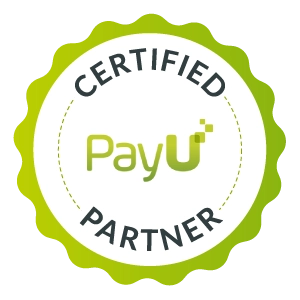Success will come only in the world of digital marketing when one knows exactly how Google measures the quality of the content. Be it a blogger, small business entrepreneur, or some other form of digital marketing expert-the idea of E-E-A-T, experience, expertise, authoritativeness, and trustworthiness-is something that one can ill afford to ignore.
In this article, we go into a thorough explanation of just what Google E-E-A-T matters to your content, and how precisely one can use those guiding principles to improve their content strategy for improved search engine ranking and credibility of their online presence.
What is Google E-E-A-T?
Google E-E-A-T stands for Experience, Expertise, Authoritativeness, and Trustworthiness. A framework applied by Google’s search quality raters in the assessment of the quality of web content, E-E-A-T does not function as a direct ranking factor but does feature importantly in the way that Google algorithms assess and grade content.
It’s based on a pretty simple principle: Google wants any content that comes up in search results to be accurate, reliable, and helpful. In fine-tuning your content to some principles of E-E-A-T, you provide better avenues for your content to come across as credible and useful, which ultimately will be able to grow your general search rankings.
Elements of E-E-A-T Explained
1. Experience
Experience: In a word, it is the factual first-hand knowledge of content related to the topic by the content creator. This has been a new addition to the E-E-A-T framework, whereby practical experience with lived realities in creating content gets greater prominence.
If for instance, you are writing about baking sourdough bread, then personal experience with bread baking itself gives authority to the write-up. This may be through elaborate descriptions of the process, problems faced in such a procedure, and lessons learned. Google prefers first-hand content, not because it is valid but because it normally carries more accuracy and information.
How Google Ranks Experience:
First-Hand Experience:
It is upon the content to portray and show that the writer actually experienced the topic they were writing on.
Subtle Knowledge:
Instead of shallow information, the readers expect deep and useful insights.
Practical Examples:
By using case studies, personal experiences, or examples about how others do something.
Understand Challenges:
Thirdly, show an understanding of common challenges or questions about the subject.
2. Expertise
Expertise: This is the knowledge of a subject area that the content creator has. Google seeks out content developed by people qualified with the relevant skills and knowledge to discuss a topic authoritatively.
For example, the expertise of an article on digital marketing written by an individual who has a degree in Marketing or who has years of experience within this field would be high. Expertise cannot be out of place especially in special niches like health, finances, and legal advice as incorrect information may have high consequences.
How Google assesses expertise:
Qualifications and Certifications:
Proof of degrees, certifications, or other formal qualifications in the subject area.
Industry Publications:
The content is published in reputable journals or industry platforms.
Speaking Engagements:
Speaking at conferences, webinars, or any other industry-related events, whether individually or on a panel.
Depth and Accuracy:
Info that comprehensively covers the topic at hand, including correct terminology and the latest information.
Ease of Access:
To take overly technical information and break it down into an understandable format for the target audience.
3. Authoritativeness
Authoritativeness would talk about the website, content creator, or brand popularity in the niche they represent. It’s not enough that one has the knowledge but also that they are acknowledged by others as an authoritative source of information.
In essence, authoritativeness may be interpreted through citations, references from other reputable sites, or through social online presence. For example, a medical-based blog post that has been frequently referred to in many other reputable medical websites would be deemed authoritative.
How Google Estimates Authoritativeness:
Citations from Reputable Sources:
Mentions or links sourced through other reputable websites.
Positive Reviews and Testimonials:
Good words from industry experts or existing clients.
High-Quality Backlinks:
Links from authoritative sites; this gives a signal of trust and acknowledgment.
Industry Recognition:
Awards, accolades, or positions within the industry.
Social Media Presence:
Strong Indicators of followership and engagement by other experts or influencers.
4. Trustworthiness
Trustworthiness speaks to the integrity of the content and the website as a whole. It means being transparent, honest, and reliable. Trustworthiness is important in order to establish a long-term relationship with one’s audience and build repeat visits.
For example, a news site would be considered trustworthy if it has a clear differentiation between opinion and factual reporting and sources its information with verifiable sources. An e-commerce website shows a clear return policy and also uses a safe way of paying for goods.
Factors that Google considers when evaluating a website for trust factors are:
Source Attribution:
Sources that are appropriately cited and data that support the claim made in the content.
Transparency:
Clear information about the author is provided, including possible biases and business practices.
Content Up-to-date:
There is routine updating of information with accurate content over time.
Secure Website:
HTTPS is in place to protect user data.
Accessible Contact Information:
All means are available for users to get in touch in case of questions or problems.
Positive User Reviews:
The feedback from users confirms the trustworthiness of the content or the website.
No Deceptive Practices:
No misleading ads, clickbait, or other manipulative practices.
Why E-E-A-T Matters to Your Content
Now that we have deconstructed what comprises E-E-A-T, it’s time to understand why all these factors mean so much to your content. It’s the quality and credibility of your content that will make or break you in the competitive world of online search.
1. Better Search Rankings
While E-E-A-T itself is not a ranking factor, the principles behind it are deeply embedded in the core of Google’s algorithm. Material designed with E-E-A-T principles in mind has a better chance of being considered high-quality, hence boosting your chances of ranking well on search engine results pages.
But if you want long-term success, it’s very important to gain the trust of your audience. If users believe that your content is credible and worth spending their time on, then they will be more likely to come back for more. Share your content and engage with your brand. This earned trust also translates into better metrics on the part of users: longer time on the page, lower bounce rate, and higher engagement rate.
2. Better Quality Backlinks
Content that is also bound to demonstrate strong E-E-A-T signals will attract better-quality links from other authoritative sites. These links are a major signal in Google’s ranking algorithm and will help boost your site’s authority and subsequent visibility.
3. Better Engagement Metrics
When your content seems credible and authoritative, it is more likely to be engaged. This could result in better metrics, such as time on page, pages per session, and return visits positive signals to the search engines.
4. More Social Shares
High-quality content gets shared across all forms of social media. While social signals are not a direct ranking factor, they indirectly contribute to your search visibility by driving traffic to your website and increasing brand awareness.
5. Topical Authority
Consistently publishing authoritative content on a subject helps in placing your website as an authority on the topic. This, in turn, could result in higher rankings for related queries, since Google considers your website as one of the people they should consider if they are looking for information about some subject.
How to Bring E-E-A-T into Your Content Strategy
But E-E-A-T is invested in your content strategy, and to do so takes a bit more consideration than the mere act of publishing content. It’s about creating that solid foundation of trust, openness, and authority in every area of your online presence.
1. Display the Qualifications and Experience of the Author
Probably one of the easiest ways to prove experience and authority is by providing details about your credentials and background, like those of your content creators. When possible, use full author bios that detail qualifications, experience, and successes. Link to their professional profiles or portfolios if applicable.
For example, an article touching on health would be more credible if it were to be written by a licensed medical professional with several years of experience in that field. In the same vein, a financial advice column by a certified financial planner would carry more conviction.
Best Practices
- Create long bios of authors by listing their qualifications and experience and mentioning some notable achievements.
- Link the author’s professional profiles, such as LinkedIn, or his website.
- Carefully vet guest authors for expertise in the subject matter.
2. In-depth coverage of Topics
Shallow content is one of the most common mistakes that negatively impact your E-E-A-T signals. So, instead of striving for the number, go for quality, publishing deep and well-researched content that covers the subject at hand quite well.
For example, if one is writing a guide on digital marketing, then one should not just skim over the bases but instead deep dive into each aspect by giving elaborate explanations, detailed case studies, and actionable tips. This will not only prove one’s expertise but raise the value for the readers too.
Best Practices:
- Create in-depth content pieces that do not stop at superficial information.
- Use case studies, real examples, and in-depth explanations to add depth.
- Anticipate related questions or challenges that your audience could have and respond to them.
3. Employ Appropriate Citations
One important thing is the citation of appropriate sources, as it adds to one’s credibility. Always base your statements on data, research, or expert opinions coming from reliable sources. It not only adds credibility to your work but also helps in gaining your audience’s trust.
As an example, if you are creating an article about a specific diet that benefits weight loss, quoting studies from accredited medical journals or licensed nutritionists will give a lot of credibility to your materials.
Best Practices:
- Always use trusted sources for support.
- Always provide a link to source original studies, research, and expert opinions found on authority websites.
- Never derived information from poor quality or unverified sources.
4. Be Transparent
Transparency is the very foundation of trust with your audience. Be straightforward about who you are, what you’re doing in the business, and any potential biases that can create conflict in the content you create. Clearly label opinion pieces versus fact-based reporting, and avoid deceptively getting clicks or traffic.
For example, if you are reviewing any product, at the opening lines you must mention whether you are affiliated or sponsored. This kind of honesty leads to much better transparency and gaining the trust of the audience.
Best Practices:
- Spell out affiliations, sponsorships, or other possible conflicts of interest.
- Differentiate between opinion pieces and factual reporting.
- Headlines should not mislead; neither should other clickbait techniques be used.
5. Regularly Update Your Content
Outdated content will erase credibility and trust in you. Make it a habit to revisit your content regularly and update all the information in it to reflect the present moment. This is quite important in topics whose face changes in relatively short periods, like technology, health, and finance.
For example, an article that targets the best SEO practices should be revised in light of new changes in algorithms and updates taking place within the industry. This keeps the relevance and authority up.
Best Practices:
- Routinely revisit your content and revise it so it stays current.
- Replace old information and statistics with new data and research or best practices.
- Leverage tools such as content calendars so you can easily schedule periodic updates to your content.
6. Deploy a Secure, User-Friendly Website
Make your website secure and user-friendly. HTTPS should be enabled to avoid leakage of data. The site should load fast, be responsive on mobile, and be easy to navigate with very clear calls to action.
For instance, an e-commerce website having enabled HTTPS, clear information on shipment and return, and responsive web design will gain users’ trust much more easily.
Best Practices:
- Enable HTTPS to protect user data.
- Make your website lightweight and mobile-friendly.
- Guide your users with intuitive navigation and calls-to-action they can actually see.
7. Engage Your Audience
Engagement with the audience is about being the authority and gaining their trust. Answer questions and respond to comments as fast as possible; comment on their conversations happening on social media. Not only will it grow your online community, but Google knows how much your content means to people.
For example, if you have a blog, be active in its comments section to stimulate conversations and build a community around your content.
Best Practices:
- Respond to questions and comments in a timely manner with thoughtful answers.
- Ask for feedback on your site and on social media to stimulate conversations.
- Use the feedback to develop your content to meet the needs of your audience better.
8. Utilize User-Generated Content
Other important trust factors that can massively help you improve your E-E-A-T signals are user-generated reviews, testimonials, and social mentions. Positive customer feedback builds up your credibility and authority in your niche. Publishing customer reviews on your website or sharing user-generated content across your social media platforms amps up your trust factor.
Best Practices:
- Also, encourage happy customers to create reviews and testimonials.
- Publish user-generated content through your website and social media platforms.
- User-generated content deserves a response to show users you value their feedback.
9. Build Authority Brand
Building authority takes time and a well-planned, aggressive approach. Regular good quality content, sticking within your niche, and a good presence on all the platforms you have chosen will make your brand, piece by piece, an authority in its sub-niche.
For example, if your brand has to do with fitness, creating regular value content on everything from tips and exercises to nutrition will work towards setting and cementing your brand as one of the knowledge leaders in the fitness sector.
Best Practices:
- Produce premium content in your niche on a regular basis.
- Create thought leadership via social media and industry publications.
- Partner with other professionals or influencers to add credibility to your brand.
Conclusion
Google E-E-A-T is other than a buzzword; it’s a very basic notion behind the perception and ranking of your content. Focusing on Experience, Expertise, Authoritativeness, and Trustworthiness is how one makes sure his content stays relevant, resonating with his audience to achieve success in the long run.
In the competitive digital space of today, a well-articulated content strategy executed according to E-E-A-T is the difference between making a difference and subsequent, consistent success. Be it content creation, running a business, or digital marketing, the understanding and implementation of E-E-A-T indeed form the very foundation of success in creating a strong and credible online presence. By following these best practices, you will meet Google’s requirements and add value to your content for better engagement, improvement in rankings, and overall online success.
FAQs
1. What does E-E-A-T stand for in the context of Google’s search quality guidelines?
E-E-A-T stands for Experience, Expertise, Authoritativeness, and Trustworthiness. These criteria are used by Google’s search quality raters to evaluate the overall quality of content on the internet. While not a direct ranking factor, E-E-A-T helps Google’s algorithms assess whether content is reliable, credible, and useful to users.
2. How can I improve the Experience aspect of E-E-A-T for my content?
To enhance the experience aspect of E-E-A-T, ensure that your content reflects real-life, hands-on knowledge or personal experience. Share detailed insights, case studies, or personal anecdotes that demonstrate your practical understanding of the topic. For example, if you write about DIY home repairs, provide personal stories or detailed guides based on your own experience with such repairs.
3. Why is Expertise important for E-E-A-T and how can I show it?
Expertise is crucial because it ensures that content is created by individuals with the necessary knowledge and skills in the subject area. To showcase expertise, include relevant qualifications, certifications, or professional experience in your content. For instance, if you are writing about medical topics, it’s beneficial to have credentials or experience in the healthcare field and to reference authoritative sources.
4. Can E-E-A-T affect my website’s search rankings?
While E-E-A-T itself is not a direct ranking factor, it indirectly influences search rankings. Google’s algorithms use the principles of E-E-A-T to assess the quality of content. Websites that align well with E-E-A-T principles are more likely to be deemed valuable and reliable, which can positively affect their search rankings.
5. How often should I update my content to maintain E-E-A-T standards?
Regular updates are important to keep content accurate and relevant. Use tools like content calendars to schedule periodic reviews and updates. Refresh your content with new data, research, or best practices as they become available to maintain high standards of Experience, Expertise, Authoritativeness, and Trustworthiness.













